
In the center of Santa Cruz is a small, professional recording studio with an orange reception room and green couches straight out of the seventies. The smell of cigarettes permeates the space, transporting you back to the bohemian nights of that era.
The studio’s main wall is proof that a legend was born here: On the left hang awards from the Association of Music Composers, and in the center are framed clippings from national newspapers.
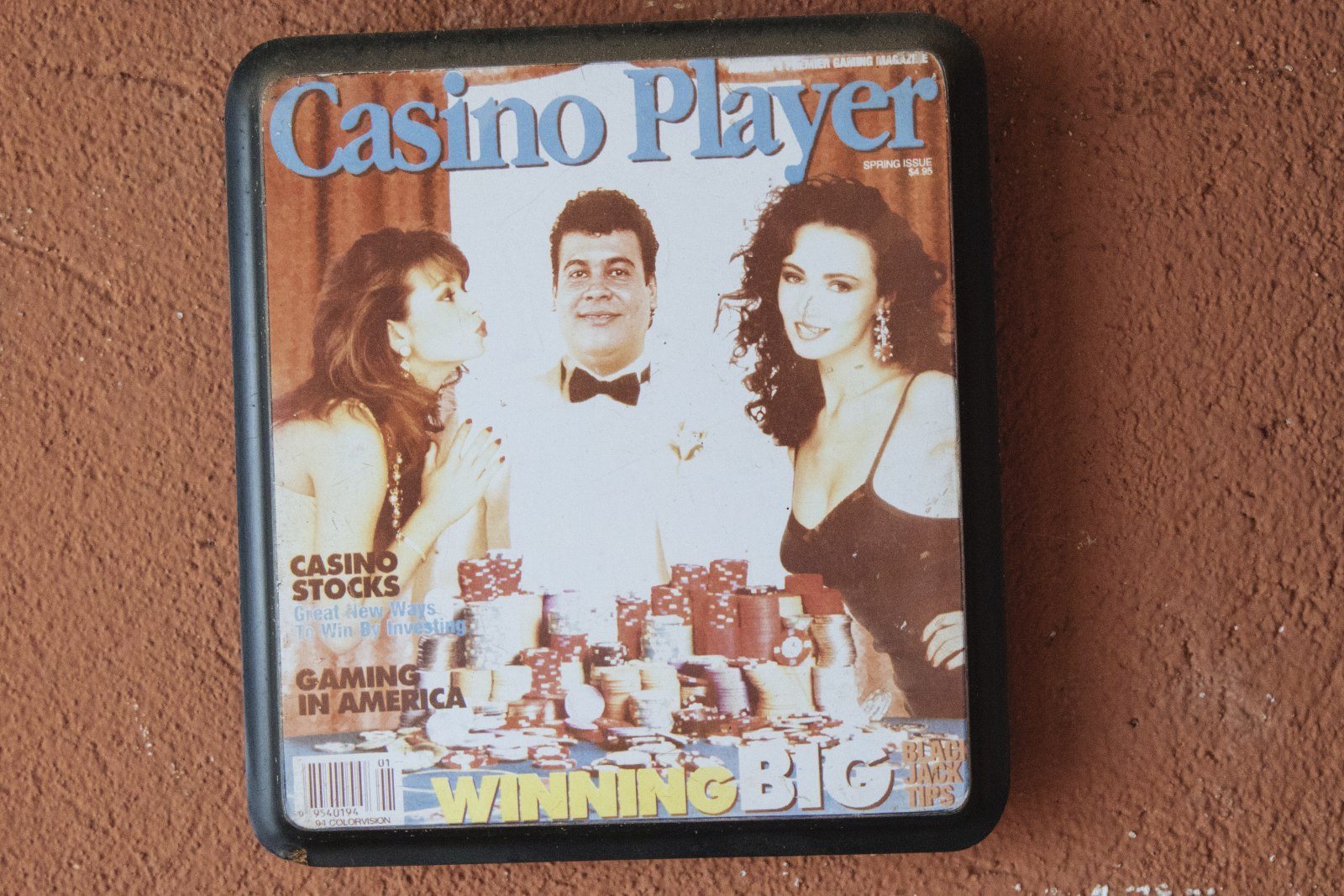
In this place, since 1999, Guanacastecan musician and composer Eduardo “Balo” Gómez has produced more than 25 albums for his group Los de la Bajura. From this studio, which carries his name, he has spread his compositions across borders to countries like Guatemala, Mexico and France.
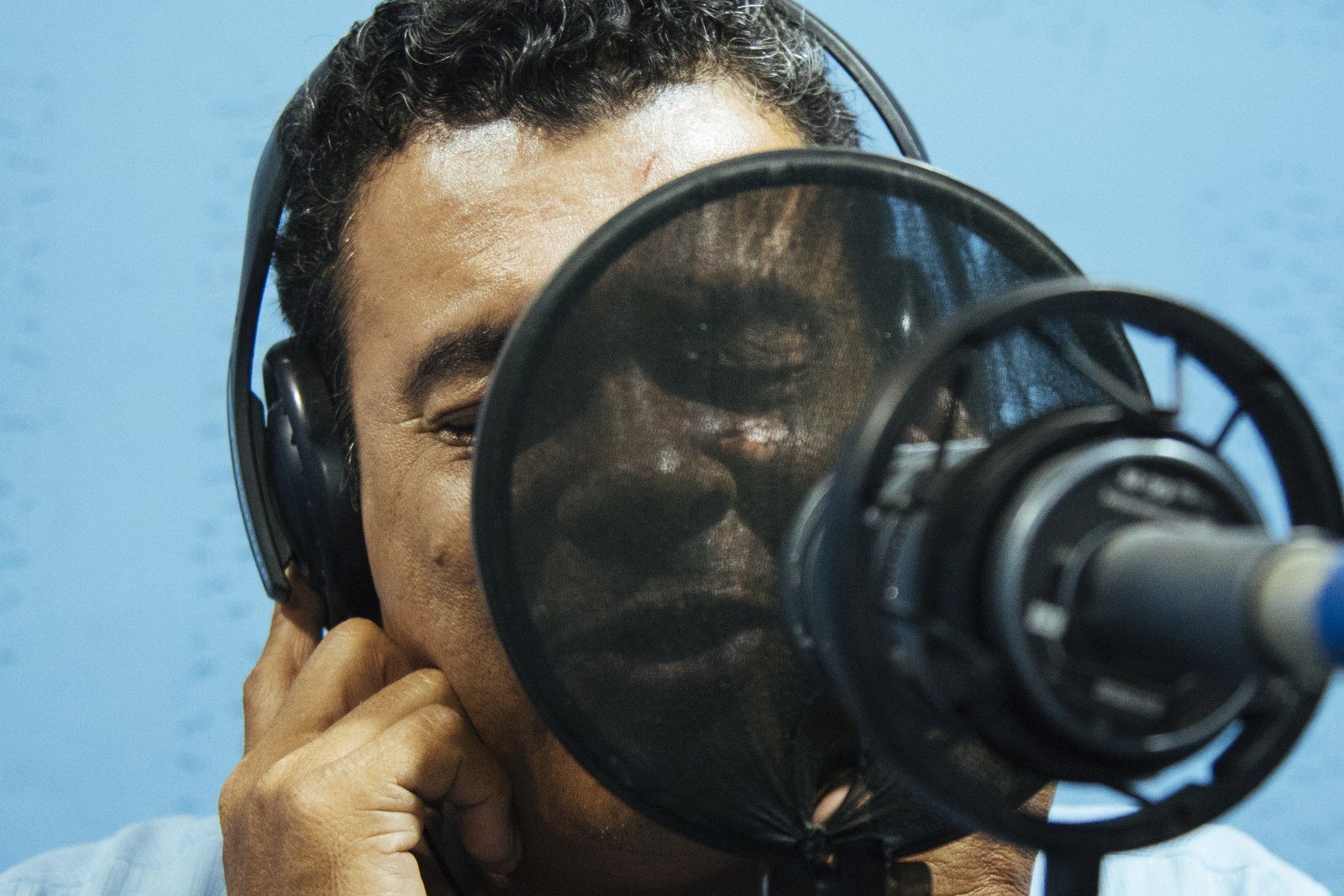
Although his recordings are now digital, Balo still has cassettes and magnetic tape on which Los de la Bajura recorded their early songs.
With an enviable sense of security and conviction, the Santa Cruz composer says his music has helped change and renovate Costa Rican folklore by promoting a concept that blends music and humor, helping Costa Ricans become accustomed to paying for shows.
“Starting with Los de la Bajura, in Costa Rica people began charging for a show. Before, that, no one thought of charging. Los de la Bajura set the trend,” he said.
Balo can spend hours at his Mac working on arrangements or creating music for one of Los de la Bajura’s shows, which often fill bars, parks and theaters. In July of last year, the group packed the Melico Salazar Theater for a show with the Philharmonic Orchestra.
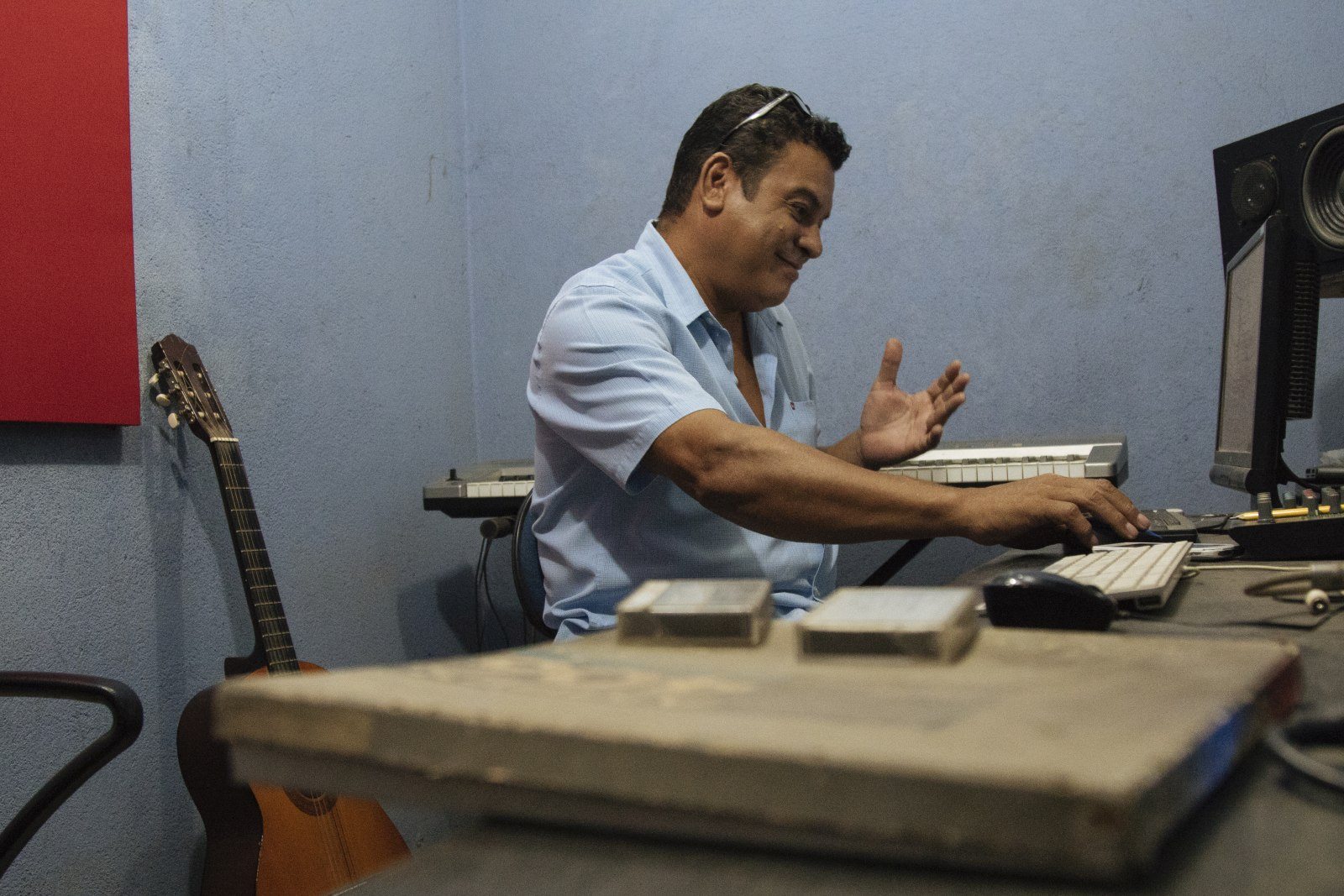
Much of this is due to his wit and humor, which are mischievous yet tasteful. He has an innate gift for storytelling and improvisation. One might suspect that his gift for comedy happens 24 hours a day, but behind the scenes, Balo is “un carajo muy relajado” – a very relaxed guy.
Sometimes he can be serious and even reserved with his life. He has a thick, deep voice. He admits that cigarettes have made his voice hoarse, but that hasn’t stopped him from smoking. He smokes Derbie Suave, and takes advantage of any pause in the interview to light up, and it is during those moments that he his comfortable enough to let out a deep laugh.
Full-Blooded Santacruceño
The folklore running through Balo’s veins isn’t a coincidence. He was born in 1966 in the Guanacaste city of Santa Cruz – known as folkloric city – and as a boy he enjoyed the sound of each marimba and every phrase of the retahilas, a succession of lyrical couplets, that can be heard throughout the city streets.
No one in his family was a musician before him. His father was a businessman and his mother a teacher, but when he was 10, Balo decided to study entry-level guitar at the University of Costa. He also studied marimba, piano and composition.
Music has always been his passion, but that didn’t satisfy his parents. After graduating high school, he studied business administration with an emphasis in marketing. While he never practiced the trade, in the end it helped him see music as a business.
Folk was his favorite genre, but he knew people would grow bored with it, so he decided to make it more dynamic. “And what better way to entertain people than with humor?” he said. With that in mind, in 1989 he began practicing with his musician friends under the name Los de la Bajura.
As the years passed, the group became tighter and more popular. Balo, who is both the group’s musical director and vocalist, began telling stories before each song, and they were always entertaining. The rest of the band followed along during the stories and began setting music to them, giving form to what today is known as “quintólogos,” a series of five-person monologues.
“I was always good at comedy, but above all, at telling stories. I don’t tell jokes, I tell stories. I tell science fiction stories,” Balo said.
Chircó, Balo’s Other Side
In Balo’s life, not everything is music. As a boy, he helped his father with chores at the ranch, tasks that he grew to enjoy. He now has his own ranch in Chircó de Santa Cruz, which occupies a good part of most mornings. “There’s always something to do here,” he said.
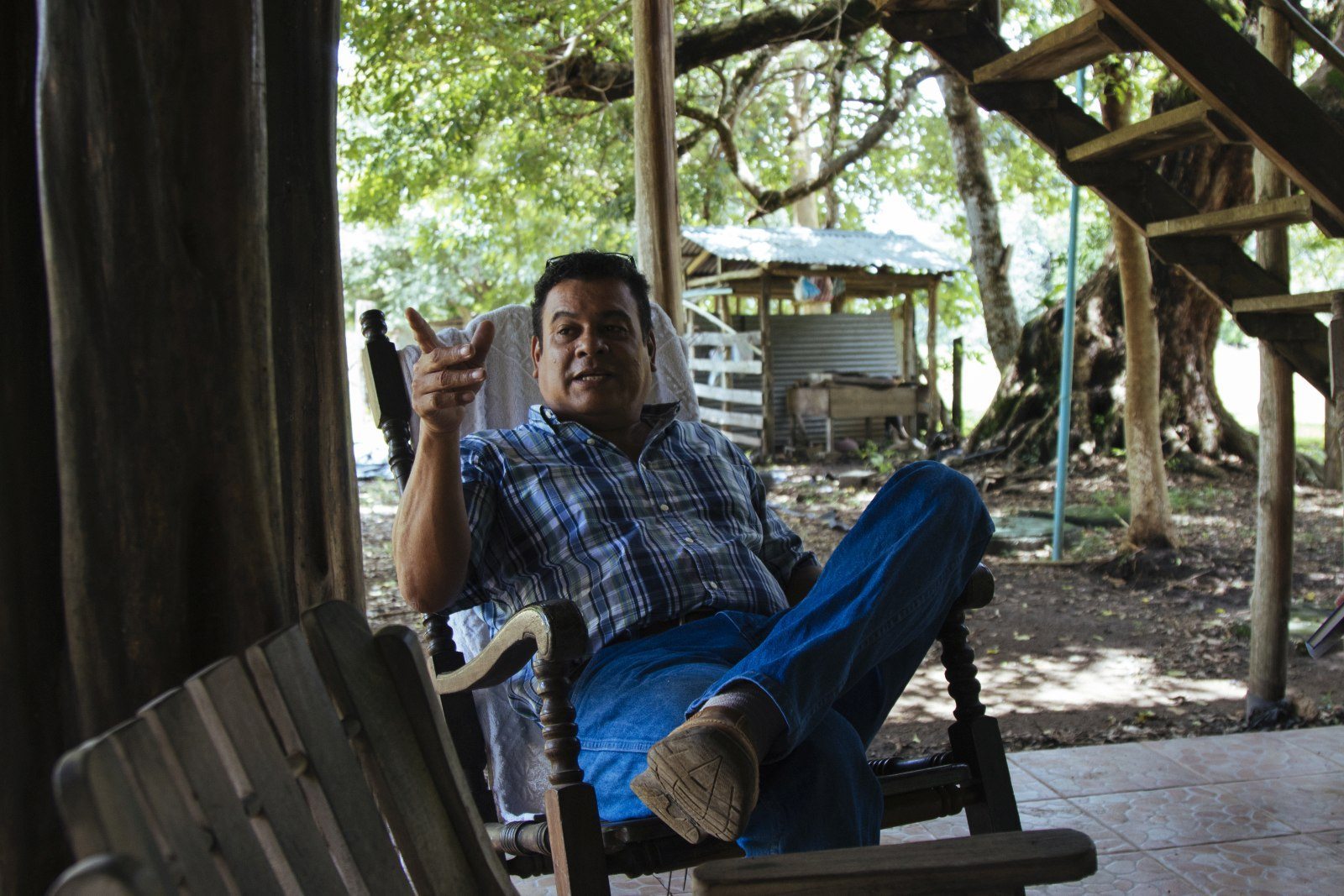
He’s not afraid to work or do what needs to be done to survive. After separating from his wife 15 years ago, he has always functioned by himself, doing everything around the house. Sometimes his children – Pamela, 26, and Eduardo Andrés, 22 – visit, but generally he lives alone with his friend Ricardo, who works on the ranch.
There are no guitars on the ranch, because Balo prefers to listen to the sounds of the countryside, but he his always singing or whistling as he walks around. “My father always said that singing and whistling scares away sorrow, and my grandmother always said that those who don’t whistle or sing have something buried in their souls.”
In his village, he talks to everyone, making them all laugh, but his frankness isn’t appreciated by everyone. He doesn’t mince his words, and he has spoken openly about “the truth” without holding back to more than a few.
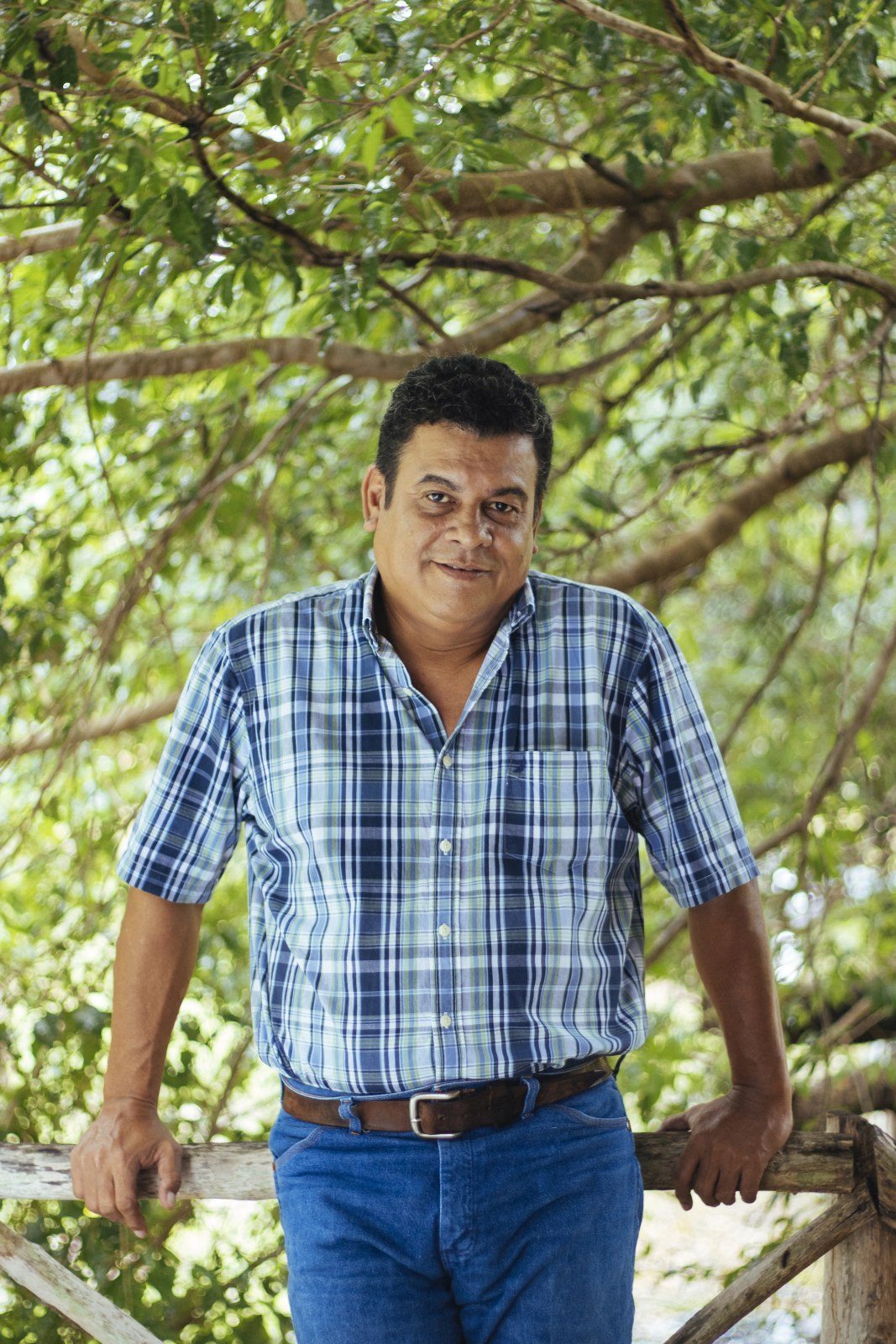
He doesn’t like watching TV series or soap operas, because they’re too long, but once in a while he enjoys watching a good movie in his bed. He’s also not a big fan of football. He’s a liguista, or fan of the Liga Deportiva Alajuelense, but he “doesn’t waste his time watching a ‘classic’ match” between La Liga and Saprissa. The only games he never misses are those played by “La Sele,” Costa Rica’s national team.
What he does enjoy is listening to the music of those he admires, such as Juan Luis Guerra or the smoking salsa classics of Fania All-Stars. Now he listens to them on his computer, not on vinyl like he did when he was 18 and DJing at the Diría Disco Club, where he had all the era’s music at his fingertips.
Balo and His Stories
Balo’s work never ends. He continues to produce music for Los de la Bajura and his other group, La Orquesta Peseteao, but now he’ll leave his stories in a book.
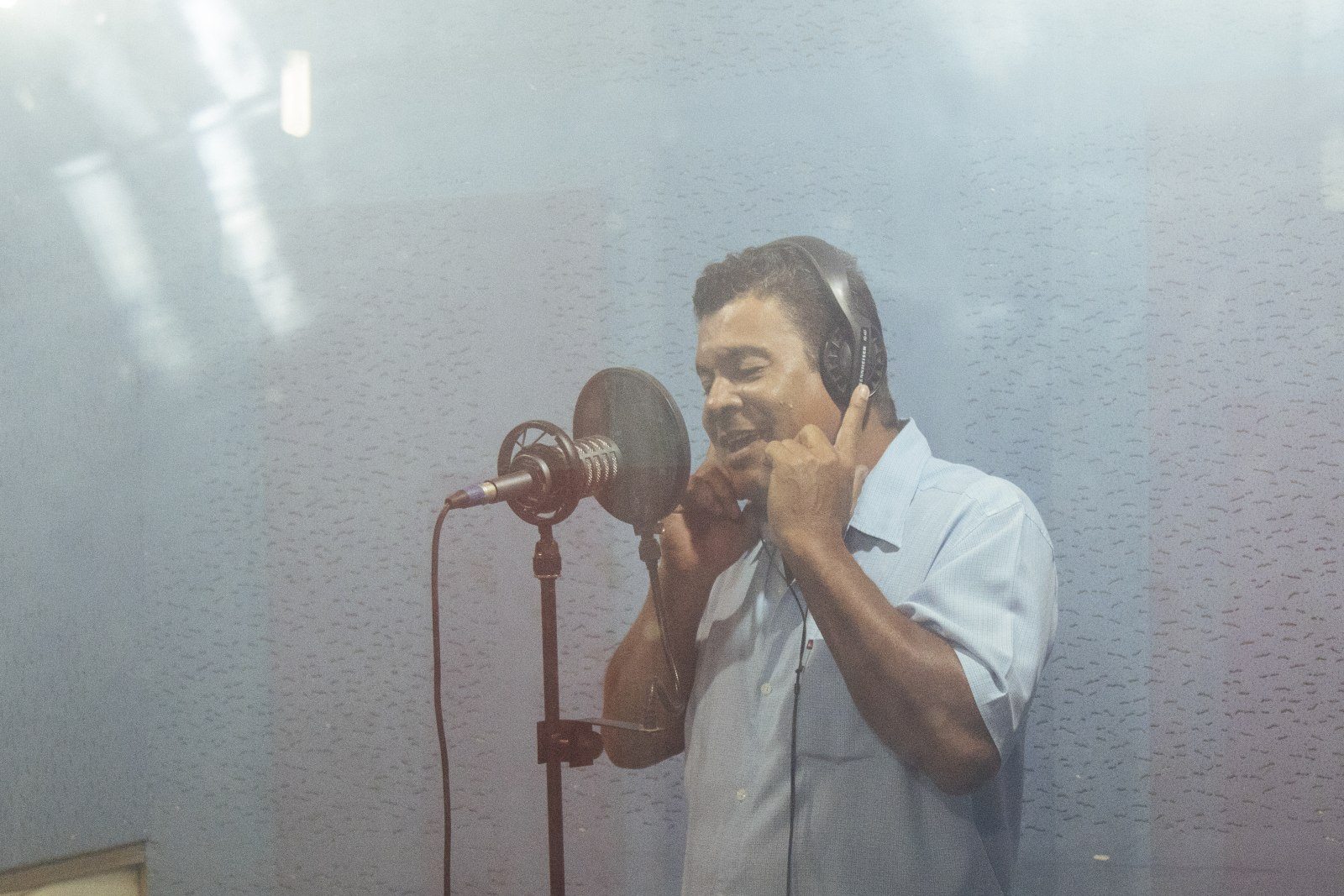
“Tallas criollas” is the name of the book Balo will publish at the end of this year, and he wants it to be filled with traditional Guanacastecan stories. The tallas are all those historic stories that traditionally were passed down orally and are peppered with fiction.
He also hasn’t ruled out other possibilities, such as becoming culture minister, a position he said he was offered by former presidential candidate Johnny Araya during the last elections, although he really isn’t interested in getting into politics.
For now, he continues working on the production of Santa Cruz Cultural Week, where he coordinates the participation of more than 100 artists.
He has his new song, “¿Qué te importa?” on his phone. While he listens to it, he lets out a deep laugh without taking his eyes off the screen, in approval of his own composition. The image of him doing that makes it clear that he enjoys what he has been doing for the past 20 years, and that he will continue doing it for many more years. Without a doubt, the life of Balo Gómez is another chapter in Costa Rican folklore.


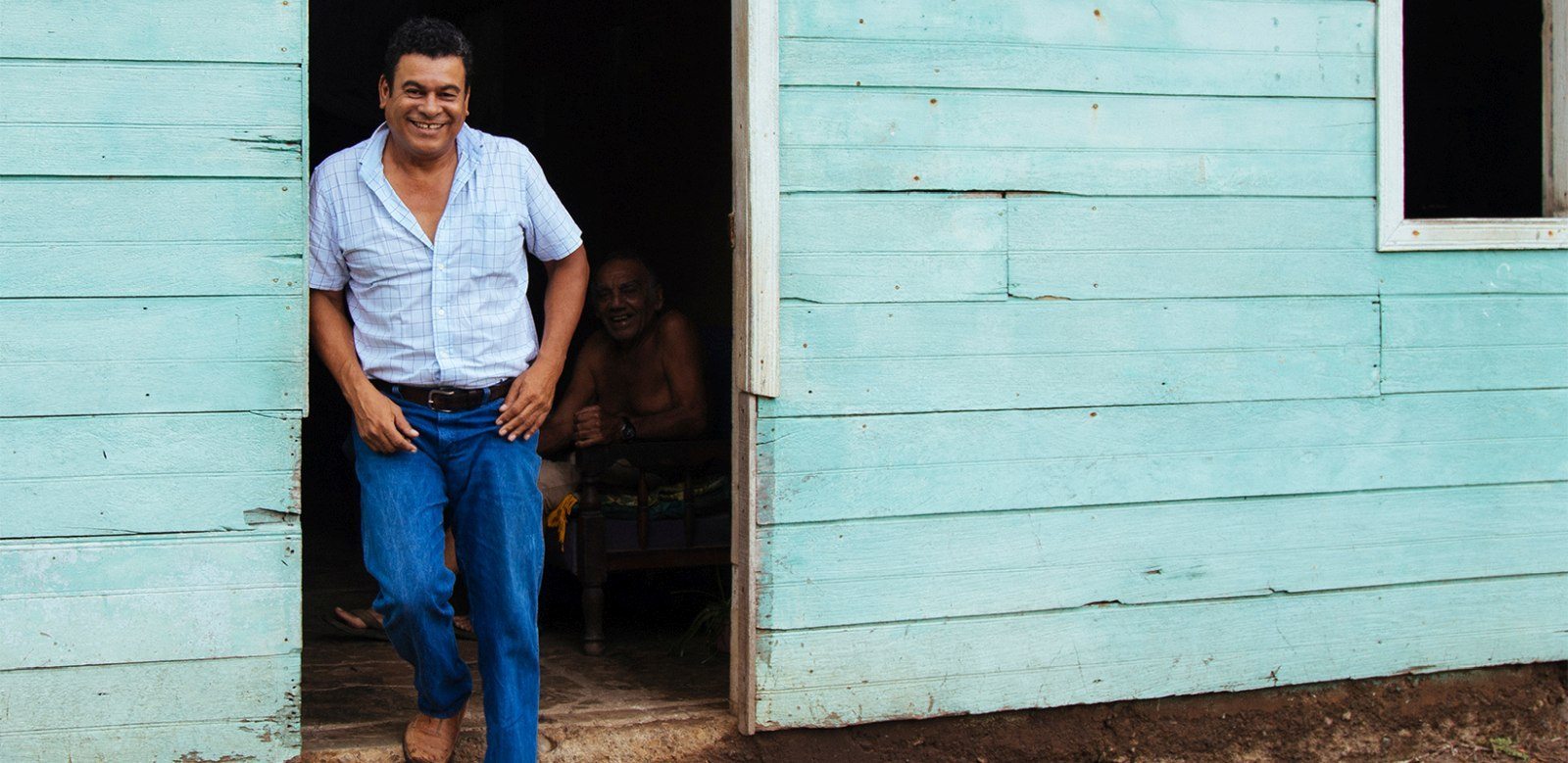
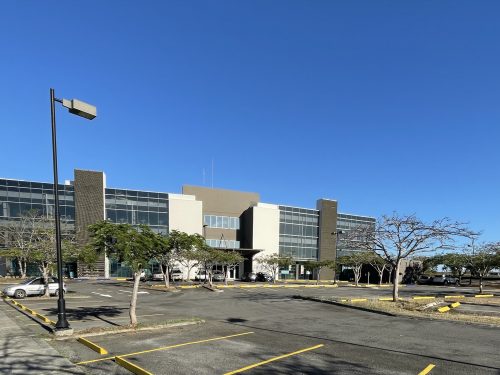
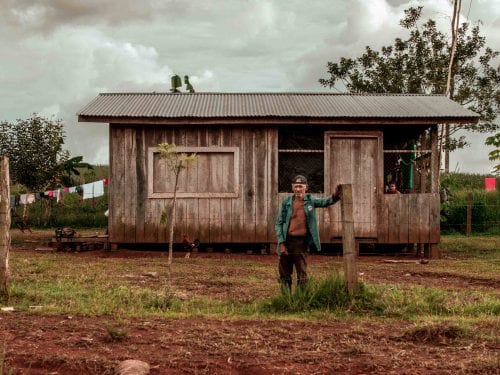
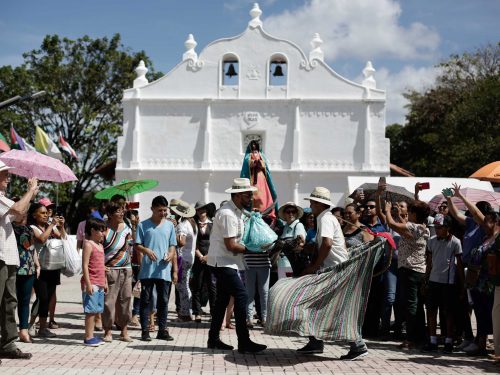

Comments